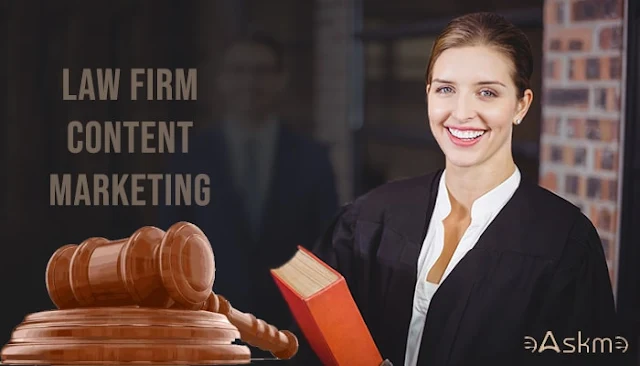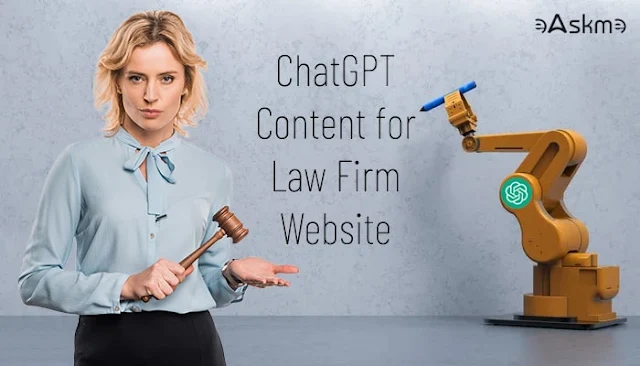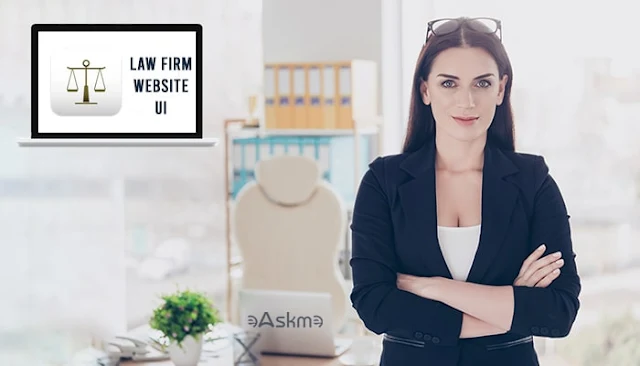Content marketing is the art and science of creating textual, visual, and video content that’s well-optimized and brings in traffic, inquiries, leads, and, ultimately, sales. Today, content marketing has become an integral part of any digital strategy, SEO plan, or traditional sales funnel. But how do you do it?
 |
| Content Marketing for Lawyers: Creating Engaging and Informative Content: eAskme |
More specifically, how do you create content that performs well without spending much on content creators or a law firm marketing company?
Well, let’s find that out!
This guide is divided into four segments—The plan, intent, process, and ideals.
Follow these tips to create an excellent content marketing plan that scales with your business.
The Plan:
Any law firm internet marketing success story begins with a plan. There are two crucial considerations here: target audience and content strategy.
Determine your target audience and understand their needs, challenges, and interests.
Tailor your content to address their specific legal concerns and provide valuable information that resonates with them.
Once that’s done, create a content strategy outlining your goals, topics, formats, and distribution channels.
Plan your content calendar, ensuring a mix of informative articles, how-to guides, case studies, videos, and other relevant formats.
The plan is important, but what’s even more important is sticking to it.
Don’t create a huge one, as that might discourage you. Roughly 5-8 high-effort posts (could be videos or carousels) are enough.
Sprinkle these throughout the month. Supplement this content with simpler, less designed or decorated content like text-based stories, live recordings, or minimal posts.
In total, aim for 15 content pieces per month.
Your communication tone and design are very important and should remain consistent in the future.
The Intent:
Don’t just create a plan based on what you like or what you think works in the industry.
Market research and competitor analysis are critical. And more importantly, the content should be valuable.
Focus on providing educational and informative content that addresses common legal questions and concerns.
Offer insights on legal processes, explain complex legal concepts in simple terms, and offer practical advice to help readers understand their rights and options.
The intent should also expand to showcasing expertise.
Position yourself as an authority in your practice area by sharing your expertise through content.
Offer analysis of recent legal developments, provide commentary on relevant cases, and demonstrate your in-depth knowledge of the law.
This helps build trust and credibility with potential clients.
The Process:
Mix up your content formats to keep your audience engaged.
Incorporate videos, infographics, and interactive content to present information in a visually appealing and easily digestible manner.
Use storytelling techniques to make your content relatable and compelling.
Completely familiarize yourself with the design requirements for every platform. 4:3 (slightly landscape) is ideal for Facebook. 1:1 (square) is suitable for Instagram.
Anything works on Twitter and LinkedIn, though generally, we recommend sticking to the square format across the board as it works well enough on both desktops and mobiles.
Reels, short videos, and stories are tall in the 9:16 ratio, covering most of a mobile screen.
That’s the design process. What about the content process?
Your content should not only be informative and helpful but also optimized.
Incorporate relevant keywords and optimize your content for search engines to improve visibility in search results.
Conduct keyword research to identify commonly searched terms and integrate them naturally into your content.
This helps drive organic traffic to your website.
Sometimes, these activities might be too much to handle on your own.
In that case, you can either build your team, which can be a little expensive, or outsource all this to an internet marketing agency with relevant experience handling lawyers, attorneys, and law firm clients.
The Ideals:
That should be enough for a law firm’s content marketing strategy. Here are some ideas to keep in mind:
- Engage with your audience, respond to comments and foster discussions around your content. Social media platform algorithms like those who stay active, consistent, and engage with others.Don’t spread yourself too thin. Posting the same posts on four platforms isn’t exactly a good strategy.
- It will fail because each platform has a different audience, and what works on one won’t work on another. Have a platform-specific strategy and only start with two platforms.
- Encourage readers to interact with your content by inviting comments and questions and sharing their experiences.Respond to comments promptly and engage in conversations to build a sense of community and foster trust.
- Inject your unique personality into your content to differentiate yourself from competitors. Be authentic, transparent, and relatable. Share personal anecdotes or case studies (with client consent) to humanize your practice and connect with your audience on a deeper level.
- Aim to establish thought leadership. Weigh in on pressing issues. Carve a loyal fanbase. Go beyond the traditional content plan once you’re ready!
Conclusion:
The highest-paid lawyers don’t earn that much without spending on content marketing.
It’s become a necessary part of any digital strategy today, and you’re missing out on heaps of traffic and tons of leads if you’re skipping this crucial aspect.
Our 4-part guide is a good place to start for any lawyer or law firm regardless of location, specialization, or marketing goals.
Follow all the actionable intelligence provided in the guide, and you can succeed!
Still have any question, do share via comments.
Share it with your friends and family.
Don't forget to like us FB and join the eAskme newsletter to stay tuned with us.
Other handpicked guides for you;
















